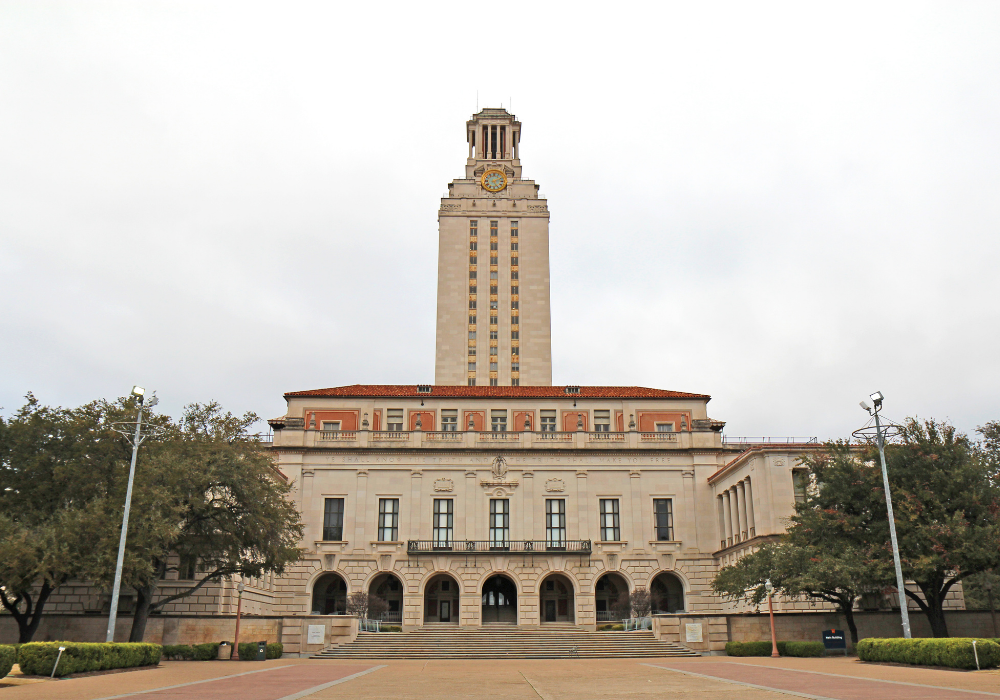UT Austin’s admissions decisions have been coming out, which means the usual wave of fallout, as students either receive the elation of acceptance or the disappointment of rejection. A rejection does not have to be the end, however, as students are able to appeal UT Austin’s admissions decision.
In this article, we’ll cover how to appeal a UT Austin decision, what the school is looking for in your update, and how to write an update letter.
Before we begin, you should know that an appeal is unlikely to succeed. While there is a chance you get in, UT Austin uses the appeals process as a waitlist, with a very low chance of admittance. A low chance is still a chance, and you can find success here; we just want you to know going in that this process has a low success rate.
How to Appeal a UT Austin Decision
A letter of appeal may be submitted online, via your MyStatus portal. It is free to do so. Your appeal must be submitted by March 15th. The appeal has two components:
- A letter of up to 500 words answering the following prompt:
- Describe the new information (not already included in your original admissions application) that should be considered by the appeals committee, and why.
- Any relevant supplemental information. This component is optional. Their suggestions are:
- A new letter of recommendation
- An updated transcript
Reviews are carried out by admissions office staff. Their goal is to determine if the new information provided is enough to warrant a new admissions decision. If no new information is given, the appeal will be automatically denied. The staff committee makes a recommendation to the Executive Director of Admissions, who makes the final decision on all appeals. All appeal decisions are final.
What UT Austin Wants to See
UT Austin is looking for significant accomplishments you have made since you submitted your application. They care more about extracurricular accomplishments; an improved GPA will impact their decision, but an increase in class rank will not. Improved standardized test scores do not impact the appeal decision.
What counts as significant varies from student to student. Founding a new club or joining a new organization generally won’t cut it. Achieving recognition in a competition, completing and publishing research, beginning a prestigious new internship, or reaching the next level of involvement in an activity may impress them.
UT Austin uses admissions off appeal to fill unexpected holes that formed when building their class, as students who they thought would attend did not. Thus your chances of getting in depend on which majors need people or have openings or other institutional needs. If, for instance, all of the saxophone players decided to take their talents elsewhere, then a student who just reached first chair saxophone in their school band would have their appeal viewed more favorably.
Twins are a special case if one was admitted and one was not. Admissions officers will make exceptions to keep twins together, though standards must still be met, this is not usually an issue.

Writing an Appeal Letter
Here is an example of an appeal letter from a former Ivy Scholars student. Read it, and we will analyze what they did well below:
Dear Admissions Council,
I am grateful for the opportunity to participate in the CAP program. After reading William H McRaven’s book Make Your Bed following his 2014 UT graduation speech, I was inspired to become a Longhorn not only for the incredible academic resources UT offers but also for the claim McRaven and UT Austin have made that “What Starts Here Changes The World.” I share this ambition to change the world, and I know that what starts this fall will guide my path. However, I wanted to share with you some new and relevant information regarding my experiences since I applied in August.
Since founding Hope United Mentorships Inc. as a 501(c)(3) non-profit organization, we have opened two new locations in Wisconsin and Ohio with a growing following across the country. With sixty-four volunteers in Houston, thirty-six in Kewaskum, and thirty in Cleveland, my original vision to provide service-leadership opportunities for high school students has grown more quickly and with more impact than I could have ever dreamed. There is no better feeling than to read the letters of gratitude we receive from the various organizations and children of whom we have served.
I also have moved forward with founding a second company, Spectrum X Entertainment LLC, an entertainment label featuring three signed artists, monthly concerts, merchandise releases, and earning opportunities for local talents. Having been honored as a National Hispanic Scholar in November, I had the opportunity to compete in the Chicago International Model United Nations (CIMUN) conference, where I won two awards: Outstanding Delegate and Best Delegate in Special Negotiations. In my seventh semester of coursework, I have raised my cumulative GPA to 4.039.
Reflecting on my accomplishments, I realized my knowledge of economics has been an intricate part of my success. My ability to observe the marketplace, analyze supply and demand, and mitigate opportunity risks propelled my business ventures, while also allowing me to optimize my scarcest resource, time. I began to yearn more for an education that would build a stronger foundation in the study of economics.
When I originally applied to UT in August, I was torn between the McCombs School and the College of Liberal Arts. I ultimately chose the business program, but, as time has passed and I have reflected on what is important to me, I have seen how much more valuable it would be to study what I believe to be my key to success. Though my current endeavors may seem ambitious, they’re soley practice for the greater things I want to accomplish in my life, as I plan on eventually inventing products and services that will change lives. In order to be successful, I know I will need an interdisciplinary education, starting at UT Austin, as timeless principles like economics will always shape the world.
I humbly ask you to reconsider me as a freshman Economics major in the School of Liberal Arts at UT Austin for the fall of 2020.
Sincerely,
John Doe
Why This Worked
The author begins by reaffirming their desire to attend UT Austin. While this is only a paragraph, it is good to begin your letter this way. The students whose places you’ll be filling are ones who decided to attend other schools in place of UT Austin, so showing your commitment to the school is a good way to begin.
The author then describes their accomplishments since they submitted their application. They submitted in August, meaning they have several months’ worth of accomplishments to cover.
They begin with the most impressive, a multi-state expansion of a charity they founded. They spend a full paragraph on this, and a second briefly covering their other, more minor, accomplishments. This demonstrates the breadth and depth of what they have done. Their accomplishments are also on a scale that impressed admissions officers. You should also spend the bulk of your time discussing your most impressive achievement; if you have several, a few short paragraphs may work.
Finally, they change their desired school and major from McCombs Business to Economics in Arts and Sciences. This is a less competitive program and is more likely to have spaces left. They spend two full paragraphs on this change, which illustrates why they have changed their mind, and explains their desire to study economics. It helps that the field is related to business, and so their motivation has not shifted radically, merely refocused somewhat.
You do not need to apply to a new school or major, and should not do so casually or cynically. Discuss with your mentor if this is a good strategy for you to take in your appeal letter.
Appealing Your Major
If you were in the automatically admitted 6%, but did not receive your first or second choice major, can appeal the decision. Note that the reason you were denied your first-choice major was a lack of space; this is unlikely to have changed on an appeal.
Second choice majors, however, are rarely considered by admissions; appealing to be admitted into your second choice major can be effective. Another option is applying to a less popular but related major. You can read our guide to choosing a major for advice on doing this.
It may be easier to transfer majors once you are already at UT Austin. If you did not get into the college you wanted at all, such as applying for Engineering and getting Arts and Sciences, then an appeal may be warranted. If you applied for Business and got Arts and Sciences, we recommend doing as the example above did, and appealing to get into Economics.
CAP and PACE
The Coordinated Admissions Program (CAP) and the Pathway to Admission through Co-Enrollment (PACE) offer students a way to transfer into UT Austin, but do not count as acceptance. These programs will allow you to enter UT Austin from an allied community college.
You cannot appeal to be accepted into these programs if you were rejected by UT Austin. Choice of campus does not matter for these programs; attending community college in Austin will not increase your chances of transferring into UT Austin.
Your admission to UT from these programs is not guaranteed but is contingent upon your performance. That said, this can still be a good option for some students; discuss this with your mentor.
Prepare for Alternatives
If your appeal is rejected, you should still have other options ready. It may not be the path you intended, but you can succeed regardless of where you attend college. Thus, even if you do submit an appeal to UT Austin, you should place a deposit at another school before the deadline. Attending nowhere is the worst option.
Final Thoughts
Nobody wants to be rejected by their top choice school, and having it happen can make you feel any number of things. These feelings are fine, and you should take the time and space you need to process them. Appealing an admissions decision is a long shot, but it does work for some students.
Another option is attending another school, and then transferring into UT Austin. If you want to learn how to do so, read our guide for transfer students. If you want to hear how we can help you transfer, schedule a free consultation. We’re always happy to help students achieve their educational dreams.








